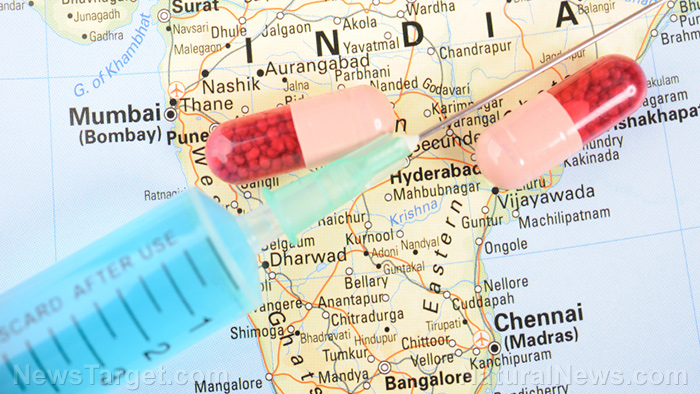Why do people with depression usually suffer from gastrointestinal distress?
05/11/2020 / By Arsenio Toledo

Patients with depression often experience gastrointestinal distress, a group of digestive disorders marked by lingering symptoms, such as constipation, bloating, diarrhea, abdominal pain and cramping. According to a study published in the journal Gastroenterology, the two disorders are connected by a common cause: low levels of serotonin, also known the “happy chemical.”
Depression and gastrointestinal distress go hand in hand
Using mice carrying a mutation linked to severe depression, researchers from different American universities showed that low levels of serotonin in the gut can cause constipation. This mirrors the consequence of having low serotonin levels in the brain, which is known to cause depression.
The researchers also found that low levels of serotonin in the gut reduce the number of gut neurons. In the mice they studied, this led to a deterioration of the gut lining and slowed movement of gut contents through the digestive tract.
On the other hand, the researchers reported that a simple treatment like 5-HTP supplementation, which can increase serotonin levels in both the brain and the gut, can alleviate depression and gastrointestinal distress simultaneously.
About one-third of people suffering from depression are also dealing with chronic constipation or some other form of gastrointestinal distress. According to reports, these digestive concerns significantly lower their quality of life. Severe constipation, which can cause serious pain, leads to 2.5 million physician visits and 100,000 hospitalizations every year.
The gastrointestinal tract is very sensitive to emotions, such as sadness, anger, happiness and anxiety. All of these different feelings can trigger reactions in the gut. This, according to researchers, can explain why people often feel nauseous in certain situations and why they sometimes feel “butterflies” in their stomach during very happy moments.
People with gastrointestinal distress caused by stress, depression or other psychological factors may even feel pain more acutely than other people. This is because their brains become more responsive to pain signals released by their distressed guts. Stress can also amplify the severity of pain. (Related: Why do we crave junk food so much? We explain the gut-brain connection and how you can train yourself to want healthier food.)
Keeping the gut healthy lowers your risk of depression
Based on this study, it’s clear that keeping your gut healthy is important for maintaining good mental health. To improve your gut health and keep anxiety, depression and other mental disorders at bay, here are seven things that you can do: (h/t to Healthline.com)
- Get enough sleep – Not getting enough sleep can cause serious problems for your gut. Poor gut health contributes to sleep issues and also affects your mood negatively. To avoid these, make sure you get at least seven to eight hours of uninterrupted, restful sleep every night.
- Eat at a slower pace – Eating your meals slowly by chewing more thoroughly can help your digestive system absorb nutrients efficiently. This also helps keep your gut healthy and prevents gastrointestinal discomfort.
- Check for food intolerances – Many symptoms of gastrointestinal distress may be caused by food intolerance. Re-evaluate your diet and try removing possible food triggers until your symptoms improve. Examples of foods commonly linked to intolerances include dairy products, gluten sources, caffeinated drinks and foods that contain fructose.
- Drink water – Drinking plenty of water is a simple way to improve gut health. It has a beneficial effect on the intestines and helps balance the composition of your gut microbiota.
- Reduce your stress levels – Chronic stress takes a toll not just on your gut, but also on the rest of your body. You can reduce your stress levels by meditating, going for a walk, having a pleasant chat with friends and family or spending time with your pet.
- Take probiotic or prebiotic supplements – Probiotics refer to live bacteria that play beneficial roles in your gut. Prebiotics, meanwhile, refer to soluble dietary fiber that promotes the growth of probiotics. Having adequate levels of good bacteria in your gut can help improve your gut health.
- Manage your diet – Research has found that a poor diet contributes to mental health problems. Get rid of unhealthy foods from your diet, such as highly processed foods rich in fat and sugar, and replace them with plenty of organic fruits and vegetables, lean proteins and foods that are high in fiber.
Learn more about your brain-gut connection at MindBodyScience.news.
Sources include:
Tagged Under: anxiety relief, beat depression, beatdepression, brain function, brain health, chronic constipation, depression symptoms, digestion, gastrointestinal distress, gut-brain connection, mental health, prevention, remedies, research, serotonin, stress relief, supplements




















